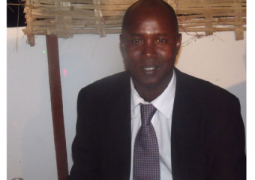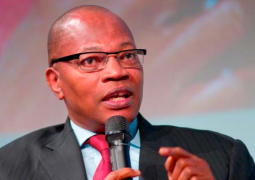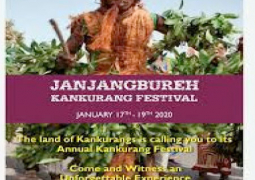The letter, tendered in court yesterday, was earlier objected to by the defence, on the grounds that it was made when the trial in this matter had already begun.
The letter touches on the termination of the appointment of former Chief Justice Joseph Wowo, and seeks to establish that there was no record in the Office of the Secretary General and Head of the Civil Service regarding any executive directive given to the third accused person, Dr Njogu Bah, for the termination of the appointment of Justice Joseph Wowo.
Njogu Bah, Lamin Jobarteh and Pa Harry Jammeh are facing trial on a three-count charge which includes conspiracy to carry out a lawful purpose by an unlawful means, giving false information to a public officer, and abuse of office.
In a ruling delivered on the admissibility of the said letter, the presiding judge, Justice Emmanuel Nkea, said: “I will, therefore, overrule the objections and proceed to admit the document in evidence, but even as I do so, I also agree that the document sought to be tendered has such a strong evidential force that it now appears to be the game-changer in this trial”.
He stated that upon the oral application made on 10th September 2013, the prosecution sought to tender in evidence a letter dated 9th September 2013, issued by the Secretary General Office of the President.
Justice Emmanuel Nkea added that the document sought to be tendered touched on the termination of the appointment of Justice Wowo, and sought to establish that there was no record in that office regarding any executive directive given to the 3rd accused for the termination of the appointment of Justice Joseph Wowo.
He said both defence counsel L.K. Mboge and B.S. Touray objected to the admissibility of this document on the grounds that it was made when the trial in this matter had already begun.
In support of this argument, he went on, counsel Mboge and Touray referred the court to the exclusionary provision of the Evidence Act, and that the state through the Director of Special Litigation, Mr Kulo, submitted a response.
It has also been argued that the document sought to be tendered was hearsay evidence, and ought not to be admitted, he said.
“I agree with the defence that the document sought to be tendered is squarely hearsay evidence in terms of the Evidence Act, in that, the witness through whom the document is being tendered is not the maker of the document,” Justice Nkea stated.
He pointed out that from a careful reading of this section, it was clear that the purpose of requiring the head of an establishment to tender such a document would be to attest to the fact that the document was indeed written and signed by that officer.
He added that the document sought to be tendered was a correspondence addressed to the Honorable Attorney General by the Secretary General, Office of the President, and the witness being a staff of the Attorney General’s Chambers has given satisfactory explanation of how he got knowledge and possession of the said document, being an official document (public document).
“I do not have any doubts that the document was regularly issued by the Secretary General, Office of the President. The fact that the witness through whom this document is being tendered is not the head of department of the maker of the document is, therefore, in my view irrelevant,” he stated.
“I will, therefore, overrule the objections and proceed to admit the document in evidence, but even as I do so, I also agree that the document sought to be tendered has such a strong evidential force that it now appears to be the game-changer in this trial,” he said.
At this point, he said there must be equality of arms in every trial, and it was the primary duty of the court to ensure that no party in the trial was put in disadvantaged position.
He said considering that the document sought to be tendered was such a crucial and vital piece of evidence, it would be substantially and manifestly unfair if the accused persons, especially, the 3rd accused person, are not given the opportunity to properly challenge its contents.
“In this regard, I find that the maker of the document is a relevant and material witness in this trial, and it would be fair and equitable for him to be made available by the prosecution to the defence for cross-examination. Giving the accused person the opportunity to cross-examine the maker of the document sought to be tendered would put the court in a better position to determine the weight to be attached to the document in terms of the Evidence Act,” he added.
‘‘As a result, therefore, I shall admit this document for only what it is worth, as the weight to be attached thereto would be determined at the end of the trial. I shall attach little or no weight to same if the maker is unable or unavailable to be cross-examined by the defence,” Justice Nkea stated.
“Let the letter and the envelope bearing same be marked as exhibits respectively,” he stated.
The case continues on 18th September 2013.




